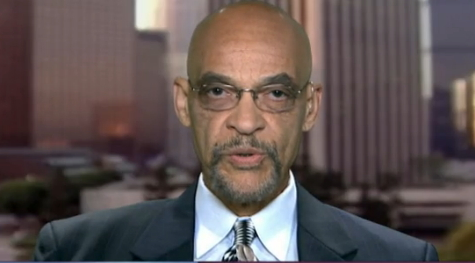Earl Ofari Hutchinson
Democratic presidential candidate Pete Buttigieg garnered exactly zero support in some polls in the early primary state, South Carolina. His dismal poll numbers there came a few days before his other Democratic presidential foe, Kamala Harris, sharply reprimanded him for inferring that the gay rights and the civil rights struggles were comparable. Now, Mayor Pete to his credit didn’t say that they were, just that as an openly gay man he knows the sting of hatred when someone sees his wedding ring and that of his marital partner. And his poll numbers in South Carolina may not be a real sign that Blacks are so turned off by an openly candidate presidential candidate that they’ll shun him. He’ s simply a newcomer on the national scene and Joe Biden racks up big numbers with Black voters there because he has had decades to cultivate ties with them.
But Harris’s need to publicly chastise Buttigieg and his low poll numbers taken together stir an old debate, really two debates. One, whether it’s right to make any comparison between gay and Black struggles. Buttigieg did quickly admit that his white skin gives him an edge.
The other is will being openly gay turn off a lot of Blacks, especially in Bible Country South Carolina and other Southern states. So far, it’s just been murmurs and whispers in some circles among Blacks about Buttigieg being gay and a presidential candidate. If it ever came to a head to head choice between Buttigieg and Trump, being gay would fly out the window fast. The overwhelming majority of Blacks would unhesitatingly back him.
That still, though, leaves Buttigieg’s inference equating gay struggles with the Black struggle and the Harris knock of him for it.
The issue has a contentious history that can be traced directly to the civil rights battles led by Martin Luther King Jr. in the 1960s. At that time, gay rights were invisible on America’s public policy radar, and homosexuality in both black and white communities was hushed up if not outright ridiculed and condemned. There’s not a word about homosexuality in any of King’s speeches or writings. There’s a way, however, to gauge what his feelings were on the issue, and that is the longtime personal and political relationship that King had with Bayard Rustin. Best known as the driving force behind the historic 1963 March on Washington, Rustin was a close King associate and a known homosexual. (In 1953, Rustin was convicted on “morals” charges — the parlance, in the frozen mood of that day, for homosexual acts.) King knew this, as did top FBI officials, black elected officials, civil-rights leaders and the tight circle of black ministers around King. That didn’t deter King from embracing Rustin.
The issue was still race first, and that has superseded all other considerations when the issue is discrimination. The argument is one that Buttigieg underscored when he made clear that his white skin gave him an immunity from the harsh racial abuses suffered by Blacks. Many Blacks say as much when they repeatedly shoot back that white gay males do not suffer routine police violence, racial profiling, denial of jobs, housing and loans on sight, or fume with rage as taxi’s speed past them on streets, or security guards tail them like puppies in department stores. There’s the ultimate retort, the history of violence. Blacks cite the thousands of Black men beaten, maimed, shot down and lynched by mobs with not even the flimsiest of protections.
If gays remain in the closet, the thinking goes, they are immune from this massive and brutal victimization. However, all major civil rights organizations after King have had none of that. In the battle over gay marriage, civil rights groups loudly denounced DOMA and all state initiatives that banned gay marriage. They drew direct parallels between the denial of gay rights and Black rights. They remind that homophobia and racism are two sides of the same coin and that many of the same white conservatives, from Pat Buchanan to Jerry Falwell, who relentlessly savaged gays were the same ones who relentlessly savage civil rights gains.
They are right, but their arguments still cut little weight with many Blacks then and even now. Black evangelicals were a pivotal force in votes approving state initiatives that banned gay marriage in several states a decade ago. Some still harbor the same reservations about gays. Buttigieg was troubled enough by that possibility that he commissioned a lengthy internal report last July on Black voter attitudes specifically on that issue in South Carolina. The findings were mixed. Some Blacks flatly said they were “uncomfortable” with his gayness. But there was a nuance in that they said he preferred that he did not make it an issue in the campaign.
He has and he layered the racial comparison on to it. That’s enough to remind many that the old issue and the old debate over gay versus Black rights won’t easily go away.
Earl Ofari Hutchinson is an author and political analyst. He is the author of Who Can Beat Trump?: America’s Choice 2020https://www.amazon.com/dp/B07KVM86C6 He is a weekly co-host of the Al Sharpton Show on Radio One. He is the host of the weekly Hutchinson Report on KPFK 90.7 FM Los Angeles and the Pacifica Network.

